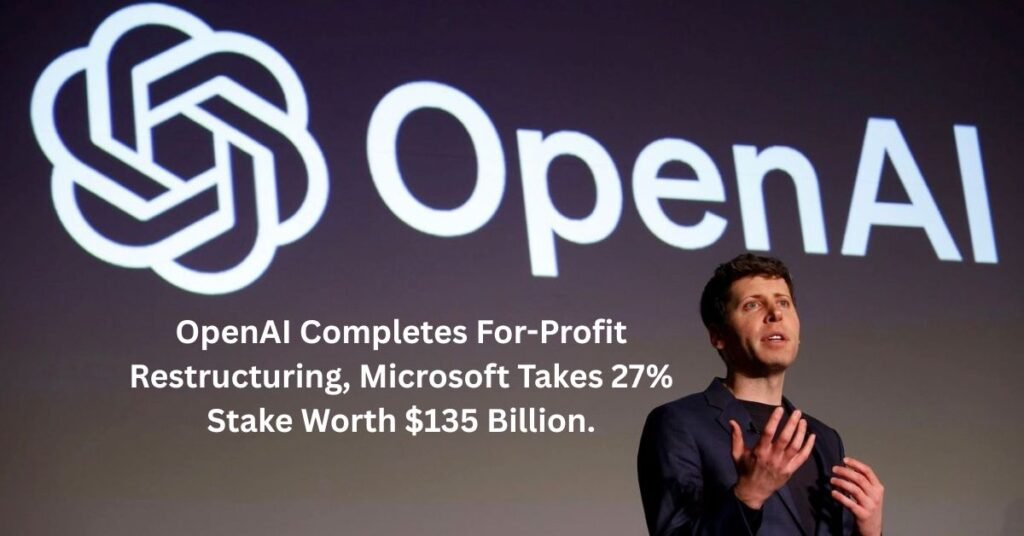OpenAI Transitions to a For-Profit Model
In a major shift for the artificial intelligence industry, OpenAI has officially completed its restructuring, transforming from a capped-profit entity into a fully for-profit corporation.
The company announced on Tuesday that its non-profit division will now operate under a new name — the OpenAI Foundation — which will continue to hold an equity stake valued at approximately $130 billion (€110 billion) in the for-profit entity.
OpenAI described the move as a necessary step to balance mission-driven governance with sustainable commercial growth, saying in a company statement:
“The more OpenAI succeeds as a company, the more the non-profit’s equity stake will be worth, which the non-profit will use to fund its philanthropic work.”
The organization added that the recapitalization “maintains the strongest representation of mission-focused governance in the industry today.”
Microsoft Strengthens Its Partnership With OpenAI
As part of the restructuring, Microsoft has signed a new long-term agreement with OpenAI, securing an estimated 27% stake in the company’s for-profit arm.
The stake, worth around $135 billion (€116 billion), cements Microsoft’s position as OpenAI’s largest strategic investor and deepens its influence in the global AI race.
The news immediately boosted investor confidence — Microsoft shares rose by up to 4% in early New York trading, pushing the company’s market capitalization beyond $4 trillion.
Governance and Regulatory Approval
The restructuring follows nearly a year of discussions between OpenAI and regulators in Delaware and California, where the company is incorporated and headquartered, respectively.
Delaware Attorney General Kathy Jennings confirmed she had no objection to the proposal. California Attorney General Rob Bonta’s office did not immediately comment on the decision.
Details of the Microsoft Agreement
Microsoft first invested in OpenAI in 2019, a partnership that has since evolved into one of the most significant collaborations in the AI era.
Under the new agreement, Microsoft will retain intellectual-property rights to OpenAI’s models and products until 2032. This includes rights related to Artificial General Intelligence (AGI) — systems capable of performing tasks that surpass human intelligence in most economically valuable fields.
Previously, OpenAI stated that its board would determine when AGI has been achieved, effectively ending Microsoft’s exclusive rights. However, the updated agreement introduces a new safeguard — any AGI declaration by OpenAI must now be verified by an independent expert panel.
Microsoft’s rights will remain valid until AGI is verified by the panel or until 2030, whichever comes first.
Potential Path Toward an IPO
Industry analysts suggest this corporate restructuring could pave the way for an eventual Initial Public Offering (IPO), opening the door for OpenAI to list its shares on a public exchange.
Such a move would not only provide access to broader capital markets but could also mark one of the most significant listings in tech history, given OpenAI’s central role in the AI revolution.
A Defining Moment for AI’s Future
With this restructuring complete and Microsoft’s renewed investment, OpenAI enters a pivotal new chapter — balancing innovation, governance, and commercial expansion in a rapidly evolving AI landscape.
This landmark deal signals more than a financial milestone; it underscores how deeply intertwined artificial intelligence and Big Tech partnerships have become in shaping the future of global technology.
Post Summary
OpenAI’s transition to a for-profit structure marks a new era for the company, solidifying its partnership with Microsoft and positioning both firms at the heart of the AI industry’s next phase. With regulators’ approval, a clear governance model, and a massive equity reshuffle, the move sets the stage for even greater global influence — and possibly, a future public offering.

